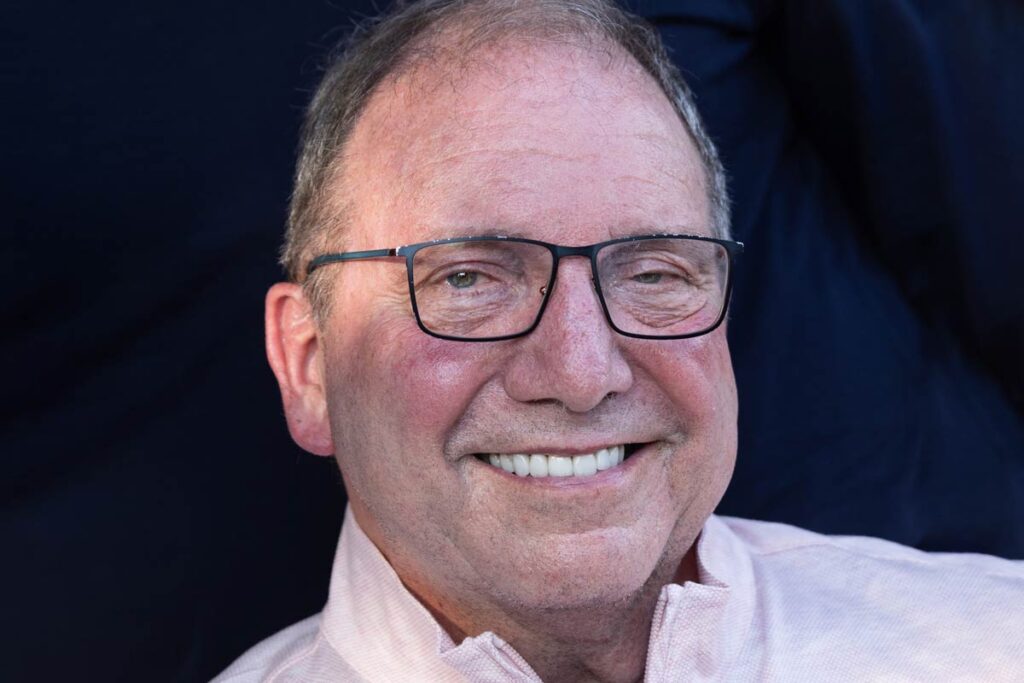Board of Directors Emeritus Member Roger Lewis: A Career of Nurturing Philanthropy at LSTC

Board of Directors Emeritus Member Roger Lewis’ path towards philanthropic leadership at LSTC was first and foremost fostered by his daughter, Alumni Board Member and Foundation Board of Trustees Member Carrie Lewis La Plante (MDiv 2004; DMin 2015). For La Plante, LSTC proved to be a place of profound personal development. “My time at LSTC was a time of significant growth as much of my life and ministry were shaped there,” La Plante says. “I also believe that LSTC has a unique voice among the seminaries in the ELCA, and I feel that it is important for that voice to continue to speak loudly and clearly into both the Church and the world.”
For Roger Lewis, his daughter’s words reflect his own deep commitment to elevating the mission, vision, and values of LSTC through philanthropy. Lewis’ commitment to raising significant funds for causes that he believes have a transformative power in our world started decades ago. With a background in marketing and public relations, Roger recognized the symbiotic relationship between his professional pursuits and philanthropy. “If you’re involved [in public relations], you become involved in community relations,” he notes. His experiences providing key support to various organizations in Nebraska solidified his commitment to fostering community engagement through philanthropy. As the landscape of educational funding shifted, Roger identified the crucial role philanthropy played in the survival of seminaries and higher education institutions.
“Philanthropy has become increasingly important to the Churchwide organization and individual organizations within Churchwide,” Lewis observes. Over time, as enrollment and engagement has declined and traditional funding streams waned, institutions were compelled to chart their own financial destinies, emphasizing the need for robust philanthropic programs. For institutions of higher education, people with skill sets like Lewis’ became increasingly important to the long-term success of programmatic and academic initiatives.
Roger’s journey with LSTC took a major turn in 2003, when he joined the LSTC Board of Directors. “At my second meeting as a board member, I was elected board Chair,” he recalls, noting his rapid ascent into leadership with a chuckle. Over the next decade, Roger’s service encompassed various roles, including Chair of the Administration and Finance Committee. However, it was the financial crisis of 2008-2009 that truly put his mettle to the test.
With the stock market’s precipitous fall threatening LSTC’s endowment-based finances, Roger took on a defining role as chair of a special finance task force. This group, consisting of board and staff leadership, rallied to rescue the seminary from financial turmoil, meticulously crafting a plan to restore its fiscal health. “My role was to provide direction to the group on our progress,” Roger explains. He consistently engaged stakeholders, ensuring transparency during the tough decisions that had to be made. The initiative culminated in a successful restoration of LSTC’s financial stability, a testament to Roger’s leadership and the power of a united community. “We developed a plan that allowed the seminary to continue to operate,” Roger reflects now with gratitude.
The recent years saw Roger’s collaboration with fellow Foundation Board of Trustees Member Sarah Stegemoeller, an effort that successfully reinvigorated former board members’ engagement and promoted increasing awareness of LSTC. “We developed a program to reengage former board members,” Roger shares. By building connections and nurturing shared enthusiasm, they successfully increased the organization’s scholarship funds, making seminary education more accessible to all.
As Roger reflects on his legacy at LSTC, he emphasizes the quintessential role of philanthropy in driving organizational progress. He advocates for an assertive approach to fundraising, suggesting that “developing programs that steward existing and new donors” is key. Upon his recent retirement from the board, Roger’s journey of leadership and philanthropy continues. His counsel for those following his footsteps is pragmatic yet profound: cultivate passion, embrace leadership roles, commit time and resources, and remain open to change. Finally, as he says, “enjoy the ride.” After all, philanthropy is not just about giving, but about enriching the very fabric of higher education, our global community, and our shared experiences.